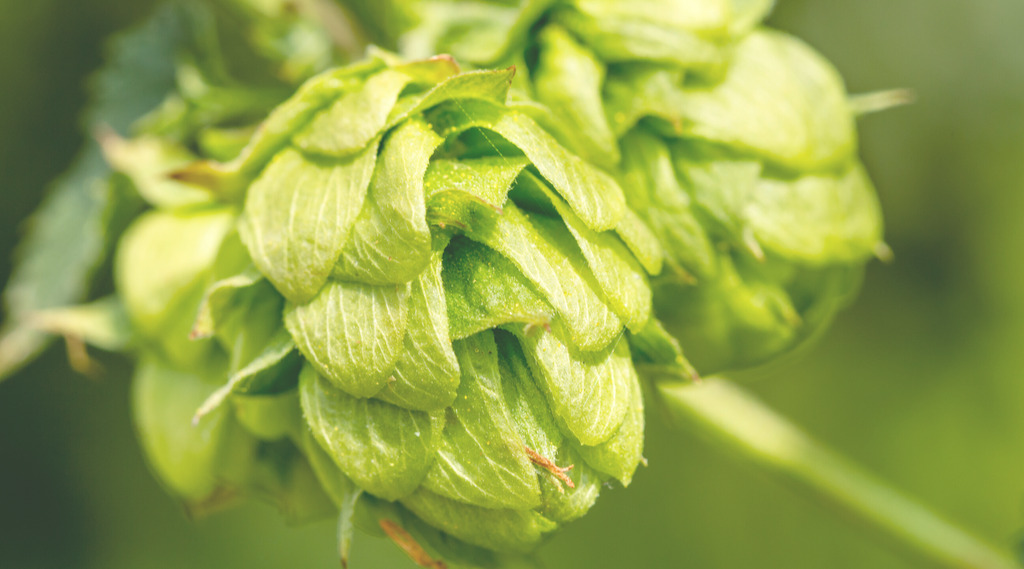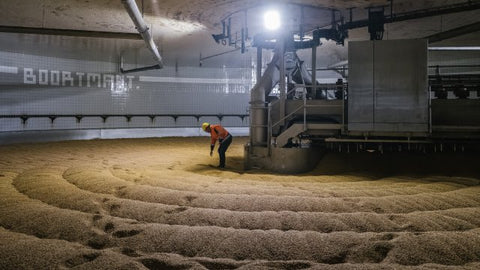
Organic beer - everything to know about bio beer
Like the craft beer trend, the organic beer trend is rather new. You may have noticed more and more beers have new labels on them claiming they are organic or bio. But what does it exactly mean? Is there a big difference between organic beer and regular beer? Is biological beer better? Let us find out!
Here is what you will learn about organic beer:
- What is organic beer?
- History of organic beer
- Different labels for organic beer
- How organic beer is made
- How to be sure that organic beer is organic
- Is organic beer healthier than regular beer?
- Can you brew organic beer at home?
- Best biological Belgian beers
- Consumer behaviour
What is organic beer?
By definition, organic beer is a beer that is brewed with organic ingredients. These organically labelled ingredients, like hops and other grains, are grown without having used any toxic pesticides and fertilisers. In terms of taste, there is no huge difference between organic and non-organic beers. Some beer experts, though, may argue and say that the taste of organic beer is better than regular beer. Still, people choose organic beers mostly to support local farmers and sustainable brewing methods.
Brief History of organic beer
Unfortunately, Belgium can not take credit for organic beers. The first organically brewed beer comes from Germany and was made by a brewery called the Pinkus-Müller. It is a family-owned brewery, and several generations have managed it.
One of the Pinkus-Müller brewers, Hans Müller, was focused on quality and found that the barley malt grown with chemicals did not reach high standards. Thus, he turned to local farmers to find locally grown organic barley.
The first brew with malt from organic cultivation was mashed in 1978. Hans got so excited about the results that he continuously converted his business to raw materials.
The brewery, founded in 1816, became the first all-organic brewery in 1991. Their beers were exported overseas to the United States and various European countries. Soon enough, the trend for organic beers caught on around the world. The movement caught on very quickly. In Belgium, for example, Cantillon brewery and brewery Dupont started brewing organic beers in the 90s.

Different labels for organic beer
Not all organic beers are the same. It depends on how many organic ingredients are used to brew the beer. When you are looking at organic beers, you notice three different labels.
100% organic - This label indicates that 100% of the ingredients are used to produce the beer.
Organic - This means that not all the ingredients used are organic, but at least 95% of them are. The rest of the ingredients may not be organic or follow strict rules.
Made with organic ingredients- This means that only some of the ingredients used are organic. The beer, therefore, is made with a mix of organic and inorganic ingredients. You can still trust that 70% of the ingredients are organic.
The European Union has also developed the European Union organic logo that can be used on products certified organic. The aim is to help the consumers to know which products are organic. The label also has precise rules. The certification is issued only to products that use at least 95% organic ingredients and use strict conditions for the remaining 5%.

How organic beer is made
Making organic beer is no different from making any other beer. The beer-making process is the same. The only difference is the ingredients are raw and organic, and everyone in the process has organic certification.
How to be sure that organic beer is organic
This is where organisations come in to confirm and check that indeed the production and products are organic. It starts with the farmer, who needs to be organically certified and controlled. Then organisations make sure no prohibited products enter the cultivation process. The products from the cultivation, like barley, wheat or other raw materials, are then certified as biological. Lastly, these materials reach the brewer. Each step of the process is carefully controlled, which is how these end products earn their organic certifications and labels. Then as a consumer, you can follow the three labels mentioned above to make your purchase decisions.
Is organic beer healthier than regular beer?
Organic beer is believed to be healthier than regular beer because no chemicals have been used to make them. The ingredients that are used are natural and raw, which makes it healthier. Nevertheless, it is still a beer, which means it contains alcohol. It is only good if you consume it moderately.
Can you brew organic beer at home?
The good news for homebrewers is that, yes, you can brew organic beer at home. With the organic beer trend, the number of organic farmers has increased. To brew organic beer at home, you need to purchase your ingredients from a certified organic farmer.
Best biological Belgian beers
Looking for a tasty organic Belgian beer? You can browse our catalogue using the organic filter to see all available organic beers. Nevertheless, here are some of our favourite organic beers:
Consumer behaviour
Since sustainability is becoming both a growing concern and a trend, it also affects the consumers' choices. Beer drinkers have more sustainable requests than ever and do not want to support farms that use chemicals that harm the environment. Thus, biological beer is only gaining popularity. Many breweries are shifting their business methods and are changing to raw materials.
Now that you know more about organic beer, are you going to choose your next beer differently?



Leave a comment